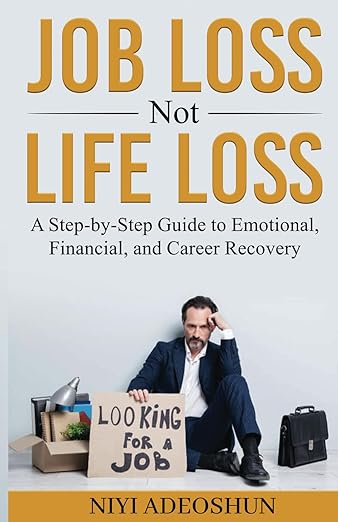We may earn a commission if you click on a product link and make a purchase at no additional cost to you. For more information, please see our disclosure policy.
Last updated: October 28, 2025
Losing your job can be an expected situation or a total shock. Regardless of how you arrived at this point, the reality is that you’re out of work and it’s time to begin your
What’s going through your mind after losing your job?
- You might be feeling incredibly stressed, wondering how long it will take to find a new position. Perhaps you’re considering whether to accept the first job offer that comes your way or wait for a position that better aligns with your experience.
- Guilt may be setting in for every minute not spent on the job hunt.
- Or perhaps you’re completely at a loss, unsure of where to even begin your
search .
In the coming weeks, your focus should be on updating your resume, crafting cover letters, researching potential employers, delving into the
In the next few weeks, you should be updating your resume, writing cover letters, researching companies, reading the Job Search Marketing Toolkit, and establishing a regular routine for your job search. You need to keep updating your resources, refresh your list, and maximize the time you spend looking for a job. But first, take a step back and review the refocus points below.
The process can indeed be overwhelming, but dedicating a day to refocusing your efforts can make a significant difference. Continue reading to learn how to direct your energy and make the most of your job search.
Job Search Plan
If you have an existing
How to Shorten Your Job Search
How to Shorten Your
10 Must-Read Networking Books for Job Search Success
This selection of books offers an extensive array of excellent networking resources for job seekers. These works cover essential
There are many excellent networking books available that can help job seekers learn the skills they need to build meaningful relationships and advance their careers
Get Your Document in Order
By now, you should have organized essential documents like your resume, cover letter, thank-you notes, and more. It’s crucial to review these to ensure nothing is missing and that they align with the job you’re targeting. Your cover letter, as the first item a
You should already have your resume, cover letter, thank you notes, etc. in order. Now is the time to review them to see if something is missing. Remember, your cover letter is the first thing the
Dedicate Time to Your Search
If you are currently without a job, dedicating at least 8 hours per day to your
Don’t Panic
Job searching requires a substantial investment of time. If you’re following a
New Job Search Sites
Begin your day by expanding your job search strategy, adding three or four more
Recruiters & Headhunters
After incorporating a few new
- Research Industry-Specific Recruiters: Look for recruiters who specialize in your field or desired role. LinkedIn is a great platform to find professionals who align with your industry.
- Utilize Professional Networks: Reach out to colleagues or mentors who might have connections with recruiters or headhunting firms.
- Attend Networking Events: Both virtual and in-person networking events can be fertile grounds for meeting recruiters.
- Craft a Tailored Introduction: When approaching recruiters, prepare a succinct and compelling introduction that highlights your
skills , experience, and what you’re seeking in a new position. - Follow Up: Building relationships takes time and effort. Regularly follow up with the recruiters and stay engaged in the conversation.
By systematically implementing these tactics, you’ll not only add more recruiters to your list but also significantly enhance the effectiveness of your
Social Networks
Networking is a crucial part of your
- Join Professional Groups: Sites like LinkedIn have professional groups related to specific industries or job roles. Joining these can provide access to like-minded professionals and potential job opportunities.
- Engage on Social Media: Follow industry leaders and companies on platforms like Twitter and Facebook. Engage with their content by commenting and sharing; this increases your visibility and can lead to new connections.
- Attend Virtual Networking Events: Many professional organizations host virtual networking events, seminars, or webinars. Participate actively to meet people in your field.
- Utilize Alumni Networks: Your university’s alumni network can be a valuable resource. Reach out to the alumni office or use platforms like LinkedIn to connect with fellow alumni in your industry.
- Volunteer for Industry Conferences: Volunteering at industry-specific conferences is an excellent way to network and show your dedication to your field.
- Create Valuable Content: Share articles, blogs, or posts related to your field. Your insights can help establish you as a thought leader and attract connections interested in your expertise.
By investing time and effort into these networking avenues, you’ll broaden your professional network, increasing your chances of finding new opportunities that align with your career goals.
Conclusion
Navigating the uncertain waters of job loss can be both overwhelming and disorienting. By adopting a focused and strategic approach to your
a step-by-step guide to recovering emotionally, financially, and professionally so you can rebuild your future with confidence and faith. Whether you’re struggling with fear, searching for a new job, or wondering how to survive financially
Joey Trebif is the pen name of Mark Fiebert, a former finance executive who hired and managed dozens of professionals during his 30-plus-year career. He now shares expert job search, resume, and career advice on CareerAlley.com.





